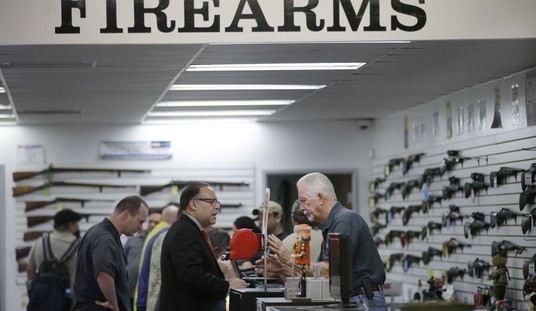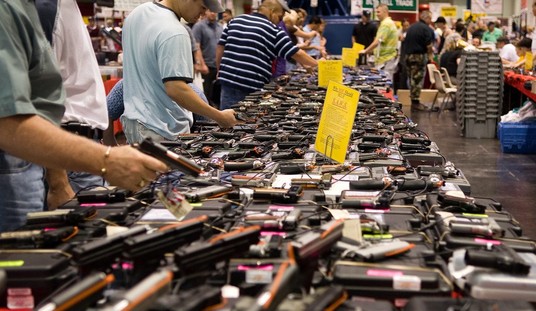California is one of a couple of states considering bills that will allow people to voluntarily put themselves on a list that makes them ineligible to purchase a firearm. On the surface, this sounds fine. After all, it’s voluntary. No one forces someone to put themselves on the list in the first place, and it sounds like something a non-gun owner would want to do if they’re suicidal but still have enough control to try and prevent it.
There’s a problem, though.
You see, as the NRA notes over at The Daily Caller, getting on the list is easy. It’s getting off that’s a problem.
While getting on the Do Not Sell List may be as simple as a few clicks of a mouse, getting off the list is challenging different matter entirely. The registrant must file a petition with a court to have his or her name removed. All persons on the registrant’s contact list are entitled to advance notice of the date, time, and location of the court hearing. And although a person may register on the list for any reason (or no reason at all), a court is authorized to remove a registrant off the list only after he or she establishes, by a “preponderance of the evidence that he or she is not at elevated risk of suicide.” The evidence needed to satisfy this standard isn’t specified, but it’s safe to assume that a mental health evaluation and testimony from a mental health professional will be required. Once a court grants the order, the state must remove the person from the NICS Index and expunge all records related to the person’s registration on the list.
A similarly inspired bill to allow a “voluntary waiver of firearm rights” is pending in Washington State. S.B. 5553 allows anyone to file a waiver document with the court, and to include the name of a “person to be contacted” if a voluntary waiver is later revoked. All waivers are fed into a state police database used to determine eligibility to purchase a handgun. The person is free to revoke the waiver at a later date, but the waiver must stay in effect for a minimum of two weeks (seven days, plus another week in which the police must delete the waiver from the database). The bill makes it a felony to provide a gun to a person where there is reasonable cause to believe the person is subject to an active waiver, and a licensed dealer is prohibited from selling or transferring a gun to such persons.
The apparent rationale behind these bills is to provide those at risk of suicide with a way to declare themselves “prohibited persons” for the purposes of future gun purchases. Assemblyman Bonta describes his bill as giving “people the power to create a potentially life-saving barrier,” and the summary on the Washington proposal claims it will prevent suicide by helping “people in crisis maintain their autonomy while saving their lives.”
Overlooking several practical issues, the bills’ effectiveness isn’t likely to match the declared sentiment of advocates.
Of the two, Washington’s is the least problematic because getting off the list doesn’t require a court appearance. I won’t be surprised to see a modification bill come up soon, though, that mirror’s California’s requirements. Get in something easy, then ramp it up as you go. See the story about boiling a frog.
However, California’s is just flat out crazy. I can’t help but see it as a way to essentially trick people into giving up their Second Amendment rights. Further, what’s to stop a judge from simply believing that because someone once considered themselves a risk, they’ll always be a risk. Hell, there are people who believe wanting a firearm at all is a sign of a pronounced psychological problem. How many of those may be judges? I don’t want to find out.
Unfortunately, this is California we’re talking about here. We all know they’ll do whatever they can to minimize people’s access to firearms, and this is yet another mechanism.
Frankly, I suspect that the truth will be that once you’re on this list, you never get off it, which will cause some to simply ignore the list when they’re depressed. After all, what if they need a gun later on to protect themselves?
The ideas sound good, but the practicality may be a different matter entirely.








Join the conversation as a VIP Member